
Ignoring a personal entreaty (and a 15 percent licensing discount) from Microsoft CEO Steve Ballmer, the city of Munich, Germany, decided recently to migrate its 14,000 PC desktop users from Windows to the Linux platform.
Laura DiDio, senior analyst of application infrastructure and software platforms at the Yankee Group, told the E-Commerce Times that the Munich decision has a great deal of symbolic public relations value.
“Munich is one of the largest cities in Germany, the country with the strongest economy in Europe,” DiDio said, adding that government organizations in Europe have long been proponents of open source systems as an alternative to Microsoft offerings.
Already Switching
Of course, Munich is not the only entity switching to Linux. Giga/Forrester analyst Stacey Quandt told the E-Commerce Times that tech-oriented organizations, such as the Johnson Space Center and the U.S. Census Bureau, also are using Linux on their desktop computers, and several insurance and financial services firms are evaluating Linux as a desktop alternative.
Has Linux finally matured into a viable desktop alternative to the Windows monolith? And will increasing adoption of this open source OS have a snowball effect in more and more organizations?
Growing Interest
Deb Woods, director of product marketing at Red Hat, told the E-Commerce Times that Red Hat’s sales have been increasing steadily across the board, month over month and quarter over quarter. Although most businesses have not made an enterprise-wide switch from Windows to Linux, numerous companies have migrated various aspects of their business, such as workstations, to Linux.
However, Woods said, Red Hat’s current Linux offering provides applications and support that an average office worker easily could utilize.
Included with Red Hat’s desktop Linux platform are the Mozilla Web browser, project planning tool MrProject, MailClient for e-mail, and OpenOffice, a suite of business applications similar to Microsoft Office that Woods said is quite capable in any enterprise environment.
In addition, Red Hat’s user interface is no more difficult to use than Microsoft Windows, according to Quandt. She said she knows several people who have computers that dual-boot between Windows and Linux, and she has yet to hear from anyone who stopped using Linux because of interface issues.
Pricing and Compatibility
Linux proponents often cite cost containment as a reason to migrate from Windows. Quandt said that while using Linux on the client side can be less expensive than using an equivalent Windows system, overall cost depends on two factors: the types and combinations of applications a company is trying to support, and how many users will be accessing the platform.
Notably, alternative business productivity suites, such as OpenOffice, do not yet offer completely seamless compatibility with Microsoft Office documents, though they are moving in this direction. Still, a lack of perfect compatibility may stop certain enterprises from leaving the Windows environment.
Most Likely To Switch
DiDio said the SMB (small and medium business) segment of the Windows installed base is most likely to consider or commence a wholesale migration to Linux desktops, largely because SMBs are not saddled by tremendous physical infrastructure issues or the need to alter hundreds of thousands of desktops already running Windows-based applications. On the other hand, those factors are more likely to affect large enterprises’ decisions about operating systems, causing them to be more conservative in their actions.
“Switching over to Linux is a less challenging and less expensive proposition for [these small- and medium-size businesses],” DiDio noted.
She also pointed out that companies might begin to use the Linux desktop as a complement to their main Windows setup. For example, an enterprise might switch a couple of remote departments to Linux and Sun’s StarOffice office productivity suite. Then, as the company tries out future cost-cutting methods, it might ask itself how Star Office has worked in the test situation. In this way, Linux may slowly infiltrate the enterprise desktop, too.





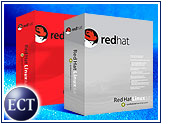

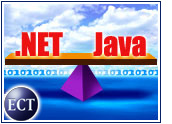





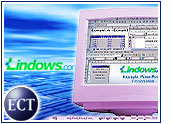
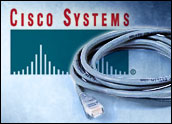
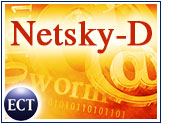

































It is good to see that Ms Didio has conceded that Linux is ready for desktop use by small to medium businesses. However, she left out large and super large businesses.
—
As I mentioned in my last post, any business can easily switch to Linux in stages, and can bypass Microsoft’s data format roadblocks by running multi-platform Free and Open Source Software (FOSS) on Windows in parallel with Microsoft’s products.
—
Then they can switch a few users at a time to Linux, and use client-server mechanisms to run the remaining Windows applications remotely from the Linux desktop machines. This is actually easier for a large or super large corporation (like IBM) to do than for a small company. Note that IBM is doing it as we speak.
Dear bootdisk,
I’d like to make some point clear.
1. The companies we are talking about are already considering a move towards linux. The reason for this is not because linux is as good as windows or anything… those companies just don’t want to be in Microsoft’s hands.
Of course, anyone considering this kind of change NEEDs the next software to be compatible with the files they already have!! Open source tries to manage this, but Microsoft keeps trying to void their efforts. Let me give you an example:
* Let’s suppose you want to change your e-mail client (the program you use to read your e-mails). Suppose you use the program AE from company A (this company has 90% of the market). But you are also considering using the program BE from company B. You will not make such a move if you are forced to delete all your old messages you have stored in your program AE!!
* Suppose now that you could successfuly change to BE and still keep your old messages. But now, company A realizes it is losing its clients and adds a new feature to its program AE in a way that you are no longer able to read emails your friend sends you because they use the program AE and you use the incompatible software BE.
* What usually happens, is that the new feature created by company A is not even technically innovative. Company A was able to void all efforts company B has done in order to produce software BE. Nobody wants software BE anymore, not because it is not good, but because everybody wants to be compatible with the standards IMPOSED by company A, which has 90% of the market.
I belive that your vision of the subject is far too simplistic!! Do you really think nobody was ever able to figure out what you just posted? Aren’t you underestimating professionals all over the world who are much more related and much more informed than you are?
2. AND THIS IS IMPORTANT!!!!
Sorry to say, but I guess you did not do your homework properly. Go around and search a little bit more about concepts like "derivative work", "software licenses", "open source", "GPL", "proprietary software"…
I will give you some hints:
* "Open Source" just means that the "source code" (the human readable format of the program) is available to whoever wants to see it. This has nothing to do with licenses that may apply to a certain open source software. Microsoft, for example, could make its sources for "internet explorer", let’s say, available for anyone who wants to look at it. This does not give anyone the right to use the program the way they want! Explorer would still be property of Microsoft, and they could restring "copy", "redistribution" and "modification" of the code the way they want! This is what is called a license.
* I belive that you were talking about the license known as GPL that is used as a license for many "open source" software available. The license states that you are "free" to modify, copy, sell, redistribute the software as much as you want. Microsoft does not allow any of those things! Microsoft is very restrictive and GPL is much more permissive. The restriction GPL imposes on REDISTRIBUTION of the software or DERIVATIVE WORKS is that this must be done under the same GPL.
No one has any legal control over some piece of software you may have developed just because it INTERACTS with some other software. You are really silly if you believe this!
One thing needs to be made clear:
* If you write software YOU have the copyrights over it! NOBODY CAN TAKE IT FROM YOU. The same applies to modification (derivative works). The modifications belong to YOU.
The problem happens in a different scope. This is your right to REDISTRIBUTE someone else’s software. Can I redistribute windows? Can I make many copies of windows and sell it?
Can I change windows at my will and sell the newly created program? Why not? Because Microsoft is the copyright holder and they do not allow it.
The same way, you can only change/redistribute someone else’s software if the ORIGINAL COPYRIGHT holder allows it. What happens to the GPL is that the ORIGINAL copyright holder chooses to give you permission (freedom) to do many stuff with HIS work, as long as you don’t attempt to neglect such rights (freedom) in the EVENTUAL case you redistribute the original work. For this reason, if you CHOOSE to redistribute some DERIVATIVE work that was given to you under GPL, you may cause the whole work to be released under GPL, too. Otherwise, nothing grants you permission to "copy", "modify", "redistribute", etc. the original work or derivatives of the original work.
GPL is an authorization for redistribution. The same way Microsoft chooses to disallow any reproduction of its work, copyright holders that release their works under the GPL also choose to disallow redistribution of THEIR (not yours) work in case you do not agree with its terms!
Of course, the above does not means that just because some program INTERACTS with a GPL program this other program will become free software. THAT’S A VERY SILLY IDEA!! Copyright holders of some program have no rights over other programs just because they interact. Please, go study!
By the way, the output a program generates (a document generated by Word, for example), has nothing to do with derivative work. The document is NOT derivative from the word processor.
Here is a good place you could get information on the issue:
http://www.gnu.org/philosophy/
I forgot to say…
People tend to resist changes, so if some organization is planing to migrate from one platform to some other platform, their workers have to feel comfortable with this new one.
Again, those companies have ALREADY decided to migrate, but they are considering issues like this (plus all the FUD). That’s what the article is all about, not about being better, or being the same, or being mediocre…
(some way I think I AM losing my time here…)
Sorry, it’s me again…
You say:
"…help the developers make money without losing ownership of their IP."
What are you talking about?
Even if you CHOOSE to release some work as free software, you still have ownership over your work!!
Asking if Open Office is compatible with MS Office is asking the wrong question. The right question is: "How compatible is MS Office with Open Office?"
Since a user can run both MS Office and Open Office at the same time under Windows, the user should be able to use whichever one has the features wanted for a particular document.
Can MS Office save documents in OO format?
This is important, because Microsoft frequently tries to lock in customers and drive competitors out of business by changing the unpublished format of documents produced by MS Office. The key to escaping this data jail is to be able to save all new documents and all important old ones in an open, stable, published format such as that used for OO documents.
A company (small, medium, large, or super large) that wants to get out from under Microsoft’s thumb does not have to make a wholesale switch to Linux. It can simply install OO on all its employees’ desktops, and require that all new documents be created and saved in OO format, and that no new purchases or upgrades of MS Office will be allowed. When the time comes to switch an employee to desktop Linux, Office data formats will not be a roadblock.
I love Linux and specially progress of it…in india
where microsoft still is the leader in OS market and people totally depend on this company, they are using office application to web browsing everything from microsoft, but Server and Network market are adopting linux fast. way to go for this penguin in india.
Beat the competition at its own game! I believe that parity in the competitive field of Desktop Computers is not a critical factor in winning over customers. Clearly and succinctly to the point: you have to be better than Microsoft in the Desktop space! Parity gets you nothing. Sure you need to definitely be compatible or have parity in functionality with applications like Office and the OS, but to have people migrate to Linux you need to be better than Microsoft. Don’t settle for making the technology mediocre; make it exceptional and people will buy or try it. One critical flaw is missed in articles like this and others reviewing Open Source code; legal issues revolve around Intellectual Property rights and interacting with Open Source code. Basically, it means that if your code (as a developer of software) interacts with Open Source code in specific ways then your code immediately becomes a part of the Open Source code, which then belongs to everyone else. This is a fatal flaw for those who want to make money on Linux and Open Source software licensing in the future. That means developers must find ways to protect their IP and make money somehow without giving it away. This could possibly stigmatize innovation. Remember, people buy software when it is great, not when it is mediocre! They will definitely spend the money to get away from Microsoft and if it has useful features and functionality. But with greatness comes responsibility (yes, I plagiarized this from Spiderman, sort of). I like the trend for Linux but KISS (Keep It Simple Stupid). Make the software better and help the developers make money without losing ownership of their IP. Obviously, this isn’t going to happen overnight, but making strides to make great software should be at the top of the priority list. Parity is only for those who want survive not excel. We need more marketing, usability and QA folks driving the software process, not a bunch of technical folks hoping that "if we build it, they will come." So to answer the question of Linux being ready for the desktop, the answer is NO. There is good Linux software, but there is no great Linux software. Yet. (Now stepping off my soapbox)
First, the 14,000 desktops in the Munich city government hardly fall in the SMB category Didio references. And, this isn’t the only instance of a multiple-thousands of desktops migration.
As to the effect on overall adoption of Linux, I would think it is clear that any large scale cutover will influence other computer users.
1) some will begin to consider Linux where they had not before
2) some will decide to cut over to Linux on the desktop
3) those who have already made their move will become part of a force for change. That is, entities such as Corel will begin to reevaluate potential demand for their own products natively ported to Linux.
Snowball effect? A very safe bet.